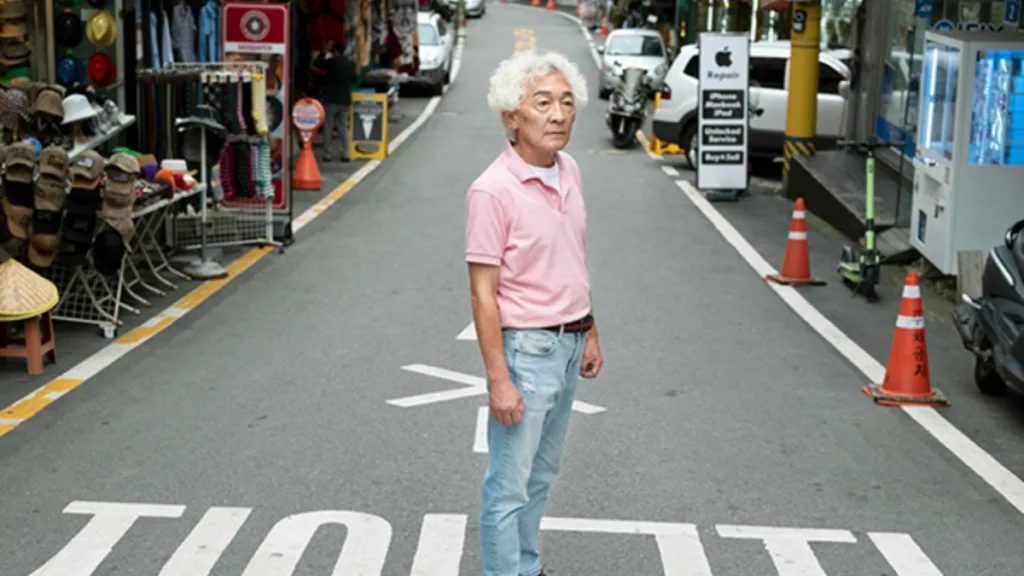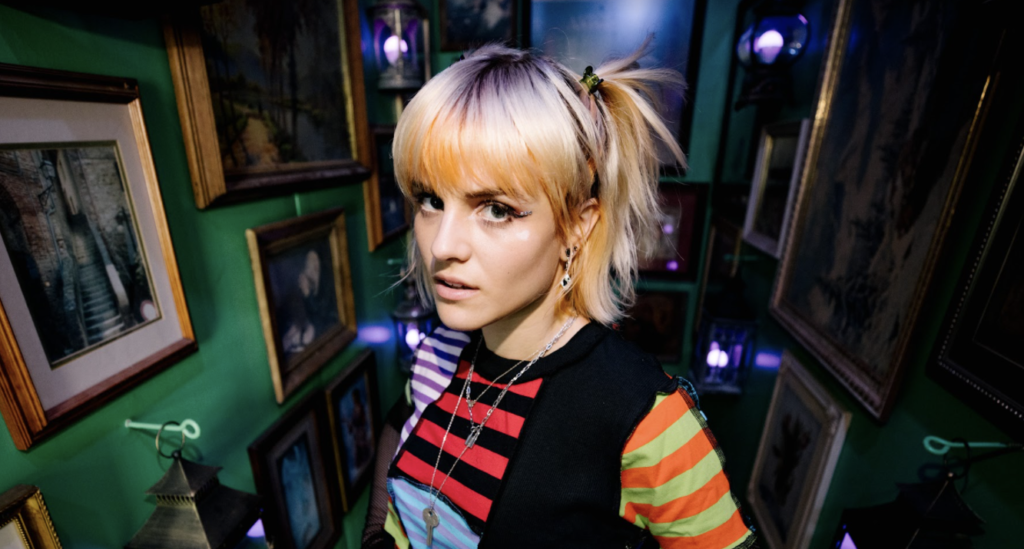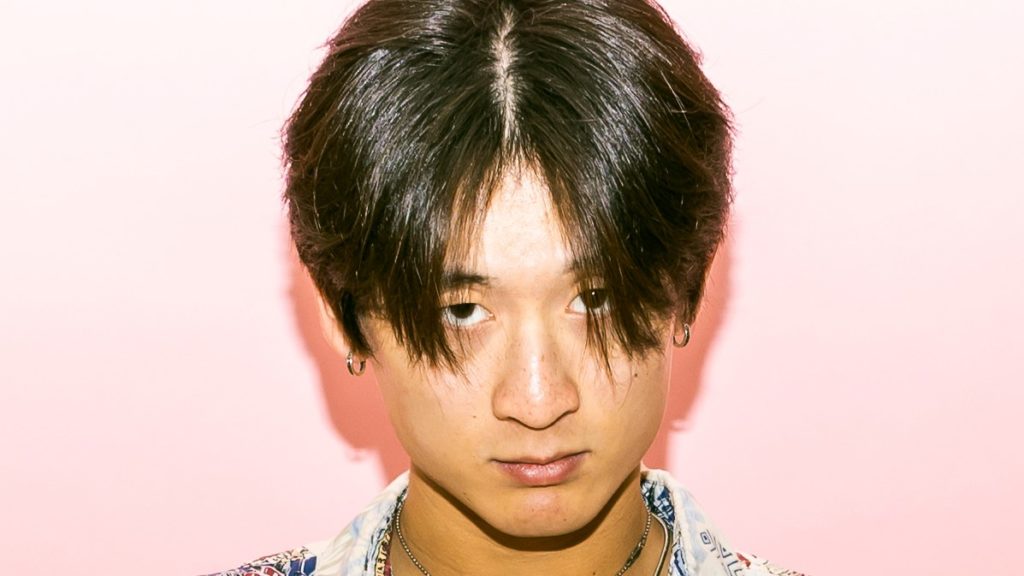ARTIST SPOTLIGHT: JHIN Becomes the New Generation’s Timeless Artist
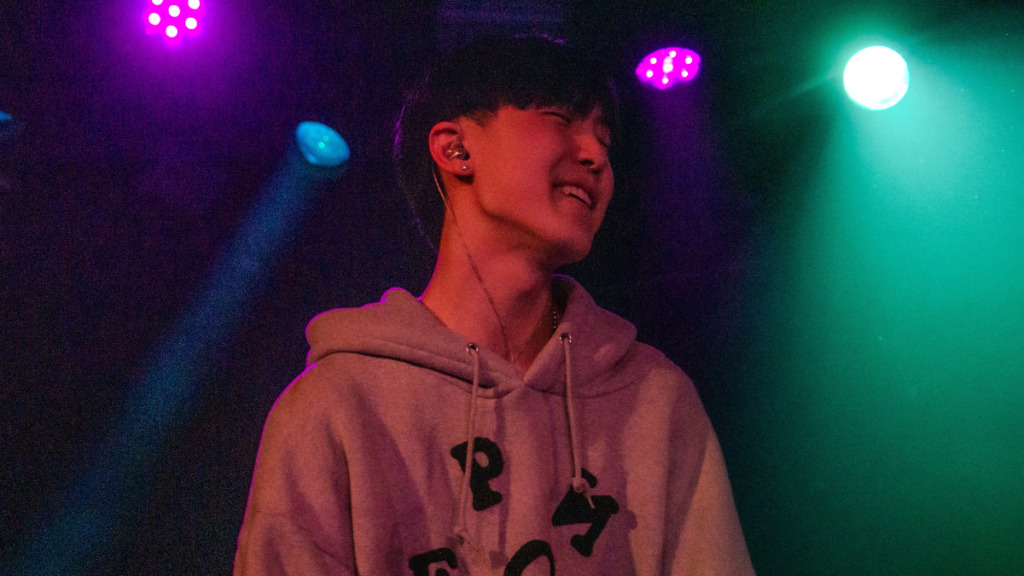
With music, we’re allowed to express what can’t be said and on what deems impossible to be silent on. By using this universal language, Korean-American alternative R&B/indie-pop artist JHIN aspires to become the new face of Asian-American representation in the music industry. JHIN’s love for music does not reside in a single genre, allowing the musician to showcase multi-dimensional tracks for any listener to immerse themselves in. With a total of four EPs that have accumulated 13 million Spotify streams and attracted 700,000 followers in under a year, JHIN demonstrates his impact through his production and steady climb to prominence as an artist.
The singer-songwriter chatted with EnVi via Zoom to discuss the creation of his color, his journey as a consumer of music, and challenging conventional norms through his sound.
The Self-Discovery of JHIN
As spirited and pleasant as his singles, JHIN joined the Zoom call with a wide smile and lively energy. Despite having just woken up, the singer showed his appreciation for this moment and we immediately dove right into where it all started — the beginning of JHIN.
Born and raised in Chicago, Illinois, the young singer has been surrounded by music since he can remember. Growing up a lover of music, JHIN thought about creating his own product someday. After wishing for certain lyrics to be said and waiting for notes to be sung to a specific melody, JHIN took matters into his own hands by creating his own music. “Not only is it that, but it’s also like a creative outlet for me, because I’m not super creative when it comes to visual art or any kind of art,” JHIN said, chuckling at his own honesty. “But I was really determined to make this my creative outlet, and I told myself, ‘I gotta be good at something so I’ll choose this!’” Having us both chuckle at the comedic yet truthful statement.
At the young age of 19, JHIN embarked on a journey to South Korea to find his direction in life, hone his technique, and craft his very own artistry. Under mentorship from producer Joseph Park (a.k.a. 220), JHIN trained while upholding a small list of goals. “One of [the goals] was to create the best product possible, that I am proud to turn in,” he shared. Another super important and prominent bullet point that stuck with me throughout my whole journey was to sound differently than how I look.”
JHIN recalls that during his time in Korea, Vietnamese American singer keshi was on the rise, resulting in an influx of East Asian artists also delving into the soft-music genre. The singer expressed his deep love for keshi and his sound, yet made it clear that he wished to deviate from the road always taken. “I wanted to create something different. [For example,] when you listen to my music, you would never guess that I’m Asian. And that was my goal, I wanted to sound differently than how I look.”
JHIN confidently stated that he’s firm on what he wants to put down on the track when it comes to melody. But when it comes to lyrical content, influences from friends play a big role in his storytelling process. JHIN smiled as he described how his friends provide feedback to his music. He not only takes the advice, but also implements it into his work if he’s content with the final cut. “I get influenced by whatever I’m going through at that moment. So even though a song sounds like it’s about one person, it’s probably stories that I’ve heard from my friends or things that I’m going through. I kind of phrase it as if I’m seeing it in someone else’s [perspective].”
The Color of Doing the Impossible
While he has various influences in his life, surprisingly enough, JHIN never gets inspired to write, and when he does, inspiration strikes at the worst times. JHIN expressed his frustration about the timing of his inspiration, as he detailed moments of urgency to write when he had finals to worry about or classes to attend. “Timing is such a reoccurring theme in my life, especially in my writing. I think I write about time all the time,” he said, pondering for a moment before accepting the reality of his songs’ recurring concept. “I just realized that a lot of my lyrics are all about time, so it wasn’t even planned per say but it just so happens to be like that!”
To create a routine to get the task done, JHIN practiced recording himself even when inspiration was nowhere to be found. In times of dormancy to moments of silence, these are the slots of time where the artist receives epiphanies for melodies. An unexpected source of creativity for JHIN can be found on his rides to class on the New York subway. “A culture shock that occurred to me was that in public transportation there’s no internet on the train carts. All connections are cut out whenever the train goes underground. That moment of silence, [of] not focusing on anything, allows me to pick up ideas. I’ve been utilizing that time to bring up ideas.”
“If you’re not good at something, don’t even start” is a statement that was forcefully implemented into JHIN’s life. Growing up Korean American, JHIN found it difficult to pursue the arts because of negative conditioning from peers and his parents. Despite the resistance, the young artist dedicated himself to creating a color he always thought was impossible to create. “That’s why my color represents my wholehearted success against what I’ve been told my whole life. You could take it in a literal sense, where you hear my sound and that’s my color,” he explained. “But to me personally, my color is doing the impossible.”
When asked what color he thinks his discography is, JHIN scratched his chin as he searched for an answer. “Gray, maybe? I think gray is kind of cliche, [but] I like gray because there’s 50 million different shades of gray,” he said. “I [also] like green. I think green is a color where, if the context matters so much, it’s a color that can really brighten your day. So I really like green. I totally vibe towards green!”
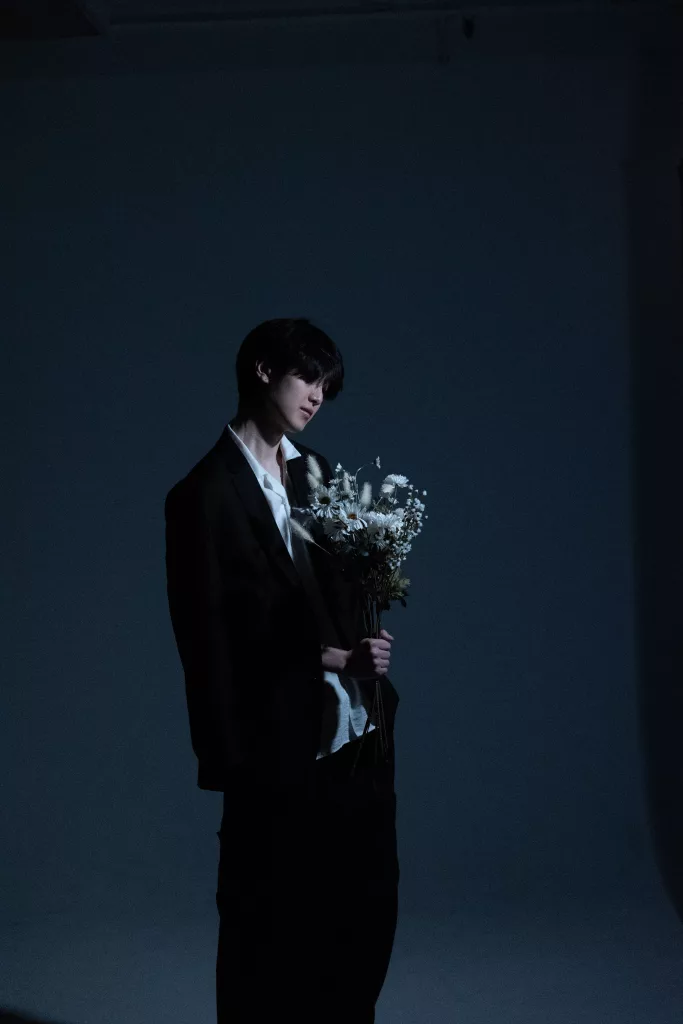
JHIN Lights Up Our World
Coupled with an artist’s sound is his lyricism – for JHIN, all artists, from those who shine through their unique storytelling to those who write relatable lyrics, are admirable. Through his work, JHIN desires to find a balance in this binary. JHIN elaborated, saying “I don’t want to try to be relatable, but I can’t help but love it when artists say something relatable. [While] I do try to implement that factor, I also want to introduce a new form of relatability within my songwriting, and speak about things that some people are afraid to talk about.”
JHIN gave a small shrug and playful smile before commenting on how little he cares if the public doesn’t favor his lyrics. As long as he’s confident in pen play, he’ll keep attacking where he’s attacking.Receiving numerous messages from fans who show their appreciation towards his lyrics has definitely given JHIN more confidence in his writing, which hints at missing a past friend. “I don’t [directly] say ‘I wish you never left my life or passed away’, but [instead] I hint towards me saying ‘I miss you’. Not in a romantic way, but in a way where I wish death had never taken you. I do want to talk about those types of themes or stories because I feel some artists or songwriters are afraid to talk about that kind of stuff.”
Encapsulating vulnerability within each track, JHIN has proven his ability to capture certain feelings in his discography. JHIN’s first live performance was in November (2023?), when he opened for Jimmy Brown’s concert in New York City. One moment that was not only impactful for the artist, but a memorable event in his musical career, was singing “Blue Butterflies” alongside the 400 audience members Although he’s still developing his people skills and struggles with anxiety when meeting strangers, JHIN professed his utmost gratitude and appreciation for those who support him: “After the show, I bumped into people who came and were saying the nicest words ever to me. That was the most lifting experience ever. I just want to make more music [and] that kind of stuff motivates and drives me to do the best that I can do. It’s kind of like their family because they’re giving me a purpose. If I didn’t do this, I’d go insane. I don’t know what I’d do.”
When faced with the suggestion that, if not for music, he would be playing video games, JHIN burst out laughing. “Yeah, I’d probably play League [of Legends]! In high school, I was such a gamer kid. I was on the league team for my high school and I played Overwatch — I actually almost went to college for Overwatch.”
Although noticeably flustered by the shift in conversation, JHIN beamed at the mention of video games, recounting his time playing online games such as League of Legends, Counter Strike, and Overwatch with friends in the college dorms. JHIN even divulged an amusing situation from his time with online learning: “I had a dual triple monitor setup and one monitor had my class and my camera [on]. And every time you would look at my screen, it would flash like this,” he said, placing his phone under his face and rapidly flashing the light, “because I was playing video games.” JHIN tied his former life to the reason that he went to Korea — to find a hobby. “I had a bucket list. On the top was music and other ones were tufting, jewelry making, clay, because there were things I always wanted to do and I never got around to it.”
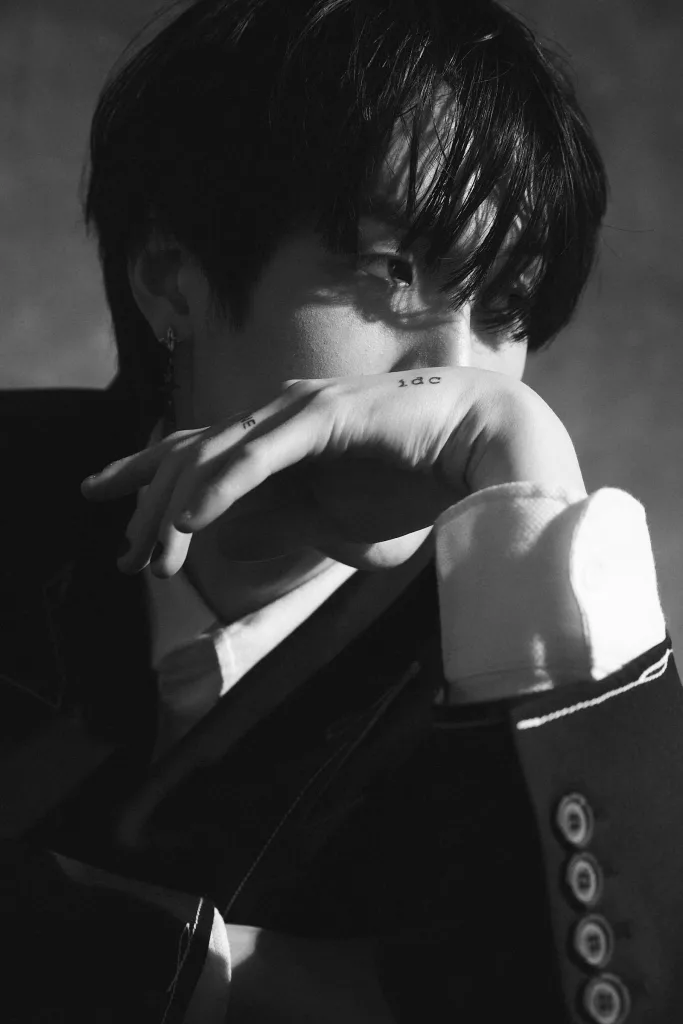
Behind The Meaning of “You Would”
JHIN’s “You Would” is a special track that, despite being “one of [his] personal favorites,” has never been fully discussed. During our Zoom call, the singer dissected the emotional song about platonic love. “While I was in Korea, one of my best friends from high school passed away, and “You Would” is about him and how much I miss him,” he shared. “In response to what I was going through at the moment, “You Would” came about. The fact that nobody knows about that is the best thing ever to me because it’s so personal to me.”
Although “You Would” is one of JHIN’s favorite tracks, he confessed that it was also one of the hardest songs to produce, emotionally and musically. Not only was it difficult to sing on par with the melody, but, for a while, he struggled with breaking down while singing. However, “You Would” gave JHIN a tool for coping with his experience.“I was stuck in this tunnel of not being able to write a good song, and I finally saw the light with “You Would.” It was the first [song] to give me hope.”
Only Good Vibes With JHIN
Building towards stardom with each track, JHIN makes his sound and presence known. Speaking of the fans who don’t hesitate to communicate their support to JHIN causes the singer to smile and reminisce about his earlier days. “When I started seeing some results, seeing people had been listening to my music and [my listeners] sending me Discord messages and emails saying that my song has made their day or changed their life — all of it reminded me why I make music. I wish the past me from three years ago was able to see the impact that my sound can have, because I definitely would not have believed that I would have such an effect.”
JHIN Sings Us One Last Song
JHIN’s musical career has only just begun. Though the start of the climb was rough with the absence of foundation and consolation, JHIN now strides with confidence and ambition. Ready to push the limits of his sound, further polish his craft, and take the music industry by a storm, JHIN is embracing the unknown on his rise to the top.
Listen to JHIN’s single “Airplanes” on Spotify and Apple Music and pre-save his upcoming release “Kid” here.
Fly high with JHIN and follow his social media accounts on Instagram, TikTok, and YouTube.
Searching for more rising solo artists? Check out EnVi’s recent Artist Spotlight with Chicana singer-songwriter Emma Negrete here!
